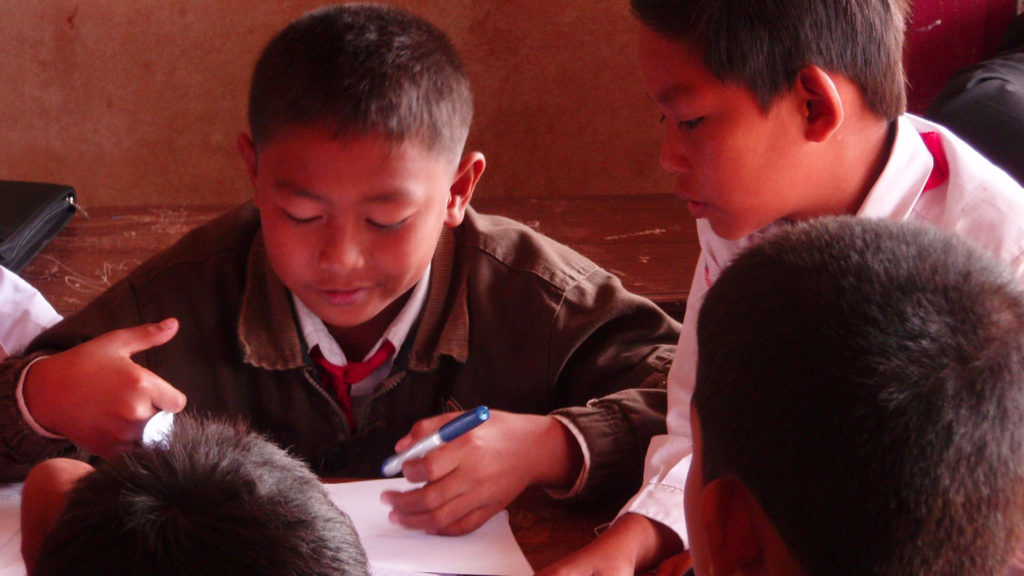CHALLENGES AND EFFECTS OF POOR MENSTRUAL HYGIENE MANAGEMENT

Menstruation is a naturally occurring physiological phenomenon in adolescent girls and pre-menopausal women. Menarche is an important biological milestone in a woman’s life as it marks the onset of the reproductive phase of her life. The World Health Organization (WHO) defines Menstrual Hygiene Management (MHM) as ‘Women and adolescent girls using a clean menstrual management material to absorb or collect blood that can be changed in privacy as often as necessary for the duration of the menstruation -period, using soap and water for washing the body as required and having access to facilities to dispose of used menstrual management materials.
Menstrual hygiene management can be particularly challenging for girls and women in developing countries, where clean water and toilet facilities are often inadequate. A World Bank report estimates that at least 500 million women and girls globally lack adequate facilities for menstrual hygiene management (MHM). The challenge menstruating girls and women face is often less tangible than simply the availability of infrastructure and is rooted in social norms and beliefs. In many cultures, menstruating women are considered impure and are systematically excluded from participating in everyday activities, such as education, employment, and cultural and religious practices. A growing body of evidence shows that girls’ inability to manage their menstrual hygiene in schools, results in school absenteeism, which in turn, has severe economic costs on their lives and the country.
According to the Economic times’ health magazine, menstruating women need to pay particular attention to personal hygiene. During this time, a woman’s vulnerability towards potentially life-threatening ailments increases. Poor menstrual hygiene can lead to many issues, such as fungal or bacterial infections of the reproductive tract and the urinary tract. Irritation of the skin causing discomfort and possibly dermatitis, the introduction of bacteria into the urethra leading to possible urinary tract infections (UTIs), alteration in the pH balance of vaginal secretions, amongst others. Asides from its health effects, poor MHM impacts the economy through absenteeism which results in lost wages, with women working in the formal sector missing on average 2.5 days per month. A World bank study linking menstruation to increased absenteeism revealed that not only do women take more sick leave (likely due to menstruation), but a small but measurable portion of the gender wage gap can be attributed to increased absences from work.
Hygiene-related practices of women during menstruation are also of considerable importance because if left unmet can lead to serious psychological impacts. Lack of knowledge regarding menstruation and menstrual hygiene leads to poor attitude and practice. There are various issues such as poor awareness; unavailability of quality sanitary napkins, poor WASH facilities; poor disposal of sanitary napkins, poor sexual and reproductive health rights education which also needs simultaneous attention for the promotion of menstrual hygiene. In this vein, Centre for Family Health Initiative has put at the forefront of its SRHR and WASH activities by adding a gender perspective to its programs by providing girls with not just adequate information on issues around menstruation but also providing these girls with access to conveniently maintaining good hygiene during their menstrual periods, through the provision of reusable sanitary napkins and equipped WASH facilities.
Though according to World Bank, promoting menstrual hygiene management (MHM) is not only a sanitation matter; it is also an important step towards safeguarding the dignity, bodily integrity and overall life opportunities of women and girls that is why an increased global awareness needs to be encouraged to accelerate a social and behavioural change as it relates to Menstrual Hygiene Management.
Share this:
- Click to share on Twitter (Opens in new window)
- Click to share on Facebook (Opens in new window)
- Click to share on Telegram (Opens in new window)
- Click to share on WhatsApp (Opens in new window)
- Click to share on Pinterest (Opens in new window)
- Click to share on LinkedIn (Opens in new window)
- Click to email a link to a friend (Opens in new window)

